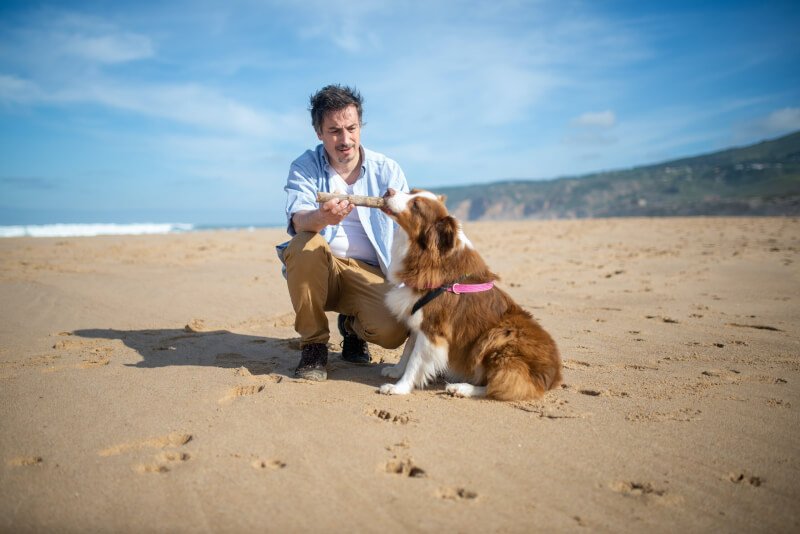With its pristine white sand beaches and crystal-clear turquoise waters, Florida is a beach lover’s paradise. And if you’re someone who enjoys the thrill of uncovering hidden treasures, beach metal detecting in Florida is an adventure you won’t want to miss. From uncovering buried coins to discovering lost jewelry, the possibilities are endless. But before you grab your metal detector and head to the shore, there are a few insider tips and tricks that will help make your beach metal detecting experience in Florida a success. So, get ready to embark on an exciting journey and let the hunt for hidden treasures begin!

Best Time to Metal Detect on Florida Beaches
Consider the Tides
When it comes to metal detecting on Florida beaches, it’s important to consider the tides. The best time to go metal detecting is during low tide or just after high tide. During low tide, more of the beach is exposed, allowing you to access areas that are usually submerged. Just after high tide is also a great time to search for treasures as the receding water may have exposed items that were previously hidden.
Check the Weather Forecast
Another important factor to consider is the weather forecast. While Florida is known for its sunshine, it’s not uncommon for sudden rain showers or storms to occur. Before embarking on your metal detecting adventure, make sure to check the weather forecast. It’s best to avoid metal detecting during severe weather conditions as it can be unsafe and may damage your equipment.
Avoid Crowded Days
Metal detecting can be a leisurely activity, and it’s always more enjoyable when the beach isn’t too crowded. Try to avoid weekends and peak vacation seasons when beaches tend to be packed with people. Not only will a less crowded beach give you more space to explore, but it will also increase your chances of finding unique items that haven’t already been detected by others.
Choosing the Right Metal Detector
Select a Waterproof Detector
Given that metal detecting is primarily done on the beach, it’s essential to choose a waterproof metal detector. The beach environment exposes your equipment to sand, saltwater, and even potential waves. A waterproof detector will help protect your investment and ensure it continues to function optimally. Look for detectors specifically designed for beach and underwater use.
Consider the Frequency
The frequency of a metal detector refers to how many times it transmits and receives signals in a given time. In general, higher frequencies are better for finding smaller, shallow targets like jewelry and coins. On the other hand, lower frequencies are more effective for detecting larger, deeper targets like artifacts or buried treasure. Consider the type of items you are most interested in finding and choose a detector with the appropriate frequency range.
Look for Target Identification Features
One of the key features to look for in a metal detector is target identification. This feature helps you determine what type of metal the detector has detected. Some detectors provide basic target identification while others have more advanced features that can differentiate between different types of metals. This can be useful in helping you decide whether it’s worth digging for a particular target.

Essential Tools and Accessories
Sand Scoop and Trowel
A sand scoop and trowel are essential tools for any beach metal detectorist. A sand scoop is used to sift through sand and scoop out potential targets. Look for a stainless-steel scoop with small holes to prevent small items from falling through. A trowel is handy for digging and loosening compacted sand, making it easier to recover targets.
Mesh Pouch and Bag
A mesh pouch or bag is useful for collecting and carrying the items you find while metal detecting. The mesh design allows sand and water to drain out, keeping your discoveries clean and preventing the accumulation of unnecessary weight. Look for a pouch or bag with multiple compartments to keep your belongings organized.
Headphones and Sunscreen
Investing in a good pair of headphones is highly recommended for beach metal detecting. They allow you to hear faint signals that might be missed without headphones, especially in noisy beach environments. Additionally, don’t forget to protect yourself from the Florida sun by applying sunscreen before heading out. Metal detecting can be a time-consuming activity, and the last thing you want is to get sunburned and cut your trip short.
Understanding Beach Areas
High-Traffic Zones
High-traffic zones on Florida beaches are areas where people tend to congregate, such as near beach entrances, picnic areas, or popular attractions. While these areas may seem like prime locations for metal detecting, they are often picked clean of valuable items. However, that doesn’t mean you won’t find anything. Keep an eye out for small items that may have been missed by others or items that may have been dropped recently.
Swimming Zones
Swimming zones, marked by buoys or lifeguard stands, are areas where people swim and play in the water. These areas can be challenging for metal detecting due to the high concentration of sand and saltwater. However, if you’re up for the challenge, be prepared to encounter a lot of false signals and reduced signal depth. Focus on the areas where people sunbathe or relax on the beach before and after swimming.
Low-Traffic Areas
Low-traffic areas on Florida beaches are often the most fruitful for metal detecting. These areas can include stretches of beach away from the main entrances, secluded spots, or remote areas. Since fewer people visit these areas, you have a higher chance of finding items that have been overlooked by other detectorists. Low-traffic areas are especially appealing for those looking for the thrill of finding rare and valuable treasures.

Where to Start Detecting
Follow the Wave Action
One effective technique for metal detecting on Florida beaches is to follow the wave action. As waves crash onto the shore, they can dislodge items from the sand and expose them for detection. Start your search where the waves break and work your way towards the shoreline. Pay attention to areas with a concentration of shell fragments, as these can indicate potential hidden treasures.
Target Hidden Areas
Hidden areas on the beach, like coves, crevices, or small dunes, can hold great potential for finding lost items. These areas provide natural hiding spots where people may have stashed their belongings or where items may have been buried and forgotten over time. Be sure to thoroughly search these nooks and crannies as they can yield unique and unexpected finds.
Check Beach Volleyball Courts
Beach volleyball courts are often overlooked by metal detectorists, making them an excellent spot to search for treasures. People playing volleyball can easily lose jewelry, coins, or other small items in the sand. Focus on the area around the court and the sidelines where players and spectators congregate. Don’t forget to ask permission from players or the court authorities before detecting in these areas.
Mastering the Techniques
Slow and Low Sweeping Motion
When sweeping your metal detector, it’s important to maintain a slow and low sweeping motion. This allows the detector’s coil to properly scan the surface and accurately detect targets. Rushing or swaying the detector too quickly can result in missed signals or inaccurate readings. Take your time and go over each area systematically to ensure you don’t miss anything.
Crossing Patterns
To ensure thorough coverage, use crossing patterns while sweeping the metal detector. This technique involves sweeping the detector in a straight line, then moving to the side, slightly overlapping the previous line, and repeating the process. Crossing patterns help sweep the coil over the entire search area and increase the chances of detecting buried items.
Digging Techniques
When you receive a signal indicating a potential target, it’s time to dig. Before you start digging, mark the spot using a small flag or a stick stuck in the sand. Use a sand scoop or trowel to carefully remove the sand and expose the target. Be mindful of the surrounding area, ensuring you don’t damage any delicate items or disturb the beach’s natural ecosystem. Fill in any holes you dig to leave the beach in the same condition as you found it.

Know the Laws and Regulations
Obtain Permission
Before you start metal detecting on a Florida beach, it’s important to obtain permission. Some beaches may have specific rules and regulations regarding metal detecting. Contact the local authorities or beach management to inquire about any permits required or restricted areas where metal detecting is prohibited. It’s always better to be informed and comply with the regulations to avoid any legal issues.
Familiarize Yourself with Local Rules
Each beach may have its own set of rules and regulations regarding metal detecting. Familiarize yourself with these rules to ensure you stay within the legal boundaries. Some beaches may have restrictions on digging or require you to report any significant findings to the authorities. By understanding and abiding by the local rules, you can enjoy metal detecting without any hassle.
Respect the Natural Environment
While metal detecting is an exciting hobby, it’s important to remember to respect the natural environment. Leave only footprints and fill in any holes you dig. Avoid damaging vegetation, sand dunes, or disturbing wildlife habitats. By being a responsible detectorist, you can contribute to the preservation of Florida’s natural beauty and ensure future generations can enjoy its beaches too.
Tips for Finding Buried Treasures
Pay Attention to Waves and Riptides
Waves and riptides can play a significant role in uncovering buried treasures on Florida beaches. Pay attention to the wave action and look for areas where the sand is being washed away or where new sand is being deposited. These areas often reveal hidden treasures that were previously buried. Be careful when exploring areas with strong riptides and always prioritize your safety.
Search Around Beach Erosion Points
Beach erosion points, such as cliffs, bluffs, or areas where the shoreline is receding, can be excellent places to find treasures. As the beach erodes, it exposes items that were once buried deep in the sand. These areas may require some extra effort to access, but the rewards can be worth it. Look for signs of erosion and search carefully around these points to increase your chances of finding valuable items.
Look for Beach Erosion Deposits
Beach erosion deposits are concentrations of sand and debris that have been washed up by waves, wind, or currents. These deposits often form ridges or mounds along the beach. While they may not be visually appealing, they can hold a wealth of hidden treasures. Search these areas carefully, as items can be buried just below the surface, waiting to be discovered.

Common Beach Metal Detecting Finds in Florida
Coins and Jewelry
Coins and jewelry are among the most commonly found items while metal detecting on Florida beaches. As people enjoy the beach, they often lose coins, bracelets, rings, or necklaces in the sand. These items can be made of various metals, such as silver, gold, or stainless steel. Keep an eye out for small signals and use your metal detector’s target identification features to determine if a specific item is worth digging for.
Lost Keys and Pocket Knives
Lost keys and pocket knives are frequently discovered treasures on Florida beaches. Whether accidentally dropped or buried in the sand, these small items are often forgotten by their owners. They can be particularly challenging to find due to their small size, but with careful searching and the right tools, you may uncover these lost belongings.
Historical Artifacts
Florida’s rich history makes it a treasure trove for finding historical artifacts on its beaches. From Spanish coins to military relics, there is always the possibility of stumbling upon a piece of the past. These artifacts can provide a glimpse into Florida’s history and offer a sense of excitement and wonder. If you’re lucky enough to find a historical artifact, it’s important to report it to the appropriate authorities, as it may have significant historical value.
Dealing with Challenges and Common Issues
Minimizing False Signals
One common challenge in beach metal detecting is dealing with false signals. False signals can be caused by various factors, such as mineralized sand, trash, or nearby metal objects like beach chairs or umbrellas. To minimize false signals, adjust your metal detector’s sensitivity settings and use discrimination features to filter out unwanted signals. Additionally, take the time to learn your detector’s signals and become familiar with the sounds it produces for different types of metals.
Battling Sand and Saltwater Effects
The sandy and salty beach environment can take a toll on your metal detecting equipment. Sand can get into crevices and joints, potentially causing damage or affecting the detector’s performance. Saltwater can also corrode metal components over time. To battle these effects, ensure you clean and rinse your equipment thoroughly after each use. Remove any sand or salt residue and dry your detector before storing it to extend its lifespan.
Recovering Targets in Wet Sand
Recovering targets in wet sand can be challenging due to the difficulty in pinpointing the location and retrieving items. Wet sand tends to compact, making it harder to dig and locate your target precisely. To overcome this challenge, use a sand scoop with larger holes to allow water to drain. Additionally, take your time and carefully search the wet sand, paying attention to subtle changes in target signals.
Metal detecting on Florida beaches can be a rewarding and exciting activity. By considering the tides, checking the weather forecast, and avoiding crowded days, you can enhance your chances of finding hidden treasures. Selecting the right metal detector, understanding beach areas, and mastering the techniques mentioned in this article will assist you in becoming a successful beach detectorist. Always remember to comply with local laws, respect the natural environment, and stay persistent in your search for buried treasures. Happy metal detecting!


